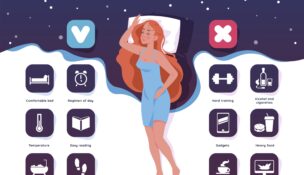Staying Healthy and Tips for Avoiding the Flu at Work
The Colorado Department of Health and Environment has extended flu surveillance through May 26, and may extend the duration of flu season beyond March 31
ColoradoBiz Staff //March 8, 2018//


Staying Healthy and Tips for Avoiding the Flu at Work
The Colorado Department of Health and Environment has extended flu surveillance through May 26, and may extend the duration of flu season beyond March 31
ColoradoBiz Staff //March 8, 2018//

With more than 3,300 influenza-related hospitalizations since October in Colorado alone, this year's flu season has significantly impacted numerous families and communities across the United States.
Even though flu season may have already reached its peak, teams should continue to maintain healthy work environments. Because of the intensity and unpredictability of this year's flu season, the Colorado Department of Health and Environment (CDPHE) has made the decision to extend flu surveillance through May 26, and may extend the duration of flu season beyond March 31.
Dr. Pamela Vallejo-Craig, an internal medicine doctor who practices at St. Anthony North Health Campus in Westminster shared some tips on how to avoid contracting the flu, particularly at work:
- Get your flu shot – May offer flu shots at the office
- Embrace basic hygiene
- Wash hands often (Don't skip soap)
- Try not to touch your nose, mouth or eyes
- Cover coughs and sneezes
- Use hand sanitizer or wash hands every time you cough, sneeze, blow your nose. Keep hand sanitizer at your desk
- Avoid shaking hands or close contact with others during flu season
- Avoid using other employees' equipment, including phones, computers, handsets, etc.
- If you are an employer, encourage employees to use their sick days or work from home if they have the flu. If your worker must come into work, don't have them sit in densely populated areas, if at all possible. Avoid others who are not feeling well or exhibit symptoms of illness.
- Stock the office with hand sanitizer *(by doors and high-contact areas)
- Keep your immune system strong:
- Eat well including light, healthy lunches
- Take breaks and step outside into the sun and fresh air, if you are able
- Drink plenty of water
- Manage stress. High stress leads to immune system depression and increases susceptibility to illness
- Keep your workstation clean. The average desk harbors hundreds of times more bacteria than a toilet seat. Keep sanitizing wipes and spray at your desk and wipe down the surfaces often.
The signs and symptoms of influenza can vary by age, immune status and underlying medical conditions. Uncomplicated influenza can include any of the following: fever, muscle aches, headache, lack of energy, dry cough, sore throat, nasal congestion and possibly a runny nose. Not all flu patients contract a fever, especially in seniors. However, fever and body aches can last three to five days, and cough and lack of energy may last for two or more weeks.
If you get sick with flu symptoms, Vallejo-Craig advises you stay home and avoid contact with other people except to get medical care. Most people with the flu have mild illness and do not need medical care or antiviral drugs.
You might need antiviral medication to treat flu if you have certain medical conditions (asthma, neurological and neurodevelopmental conditions, chronic lung disease, heart disease, blood disorders, diabetes, kidney/liver disorders, metabolic disorders, weakened immune system)
“It’s very important that antiviral drugs be used early to treat people who are sick with the flu in these high risk groups,” said Dr. Vallejo-Craig. “Most otherwise-healthy people do not need to be treated with antiviral drugs. Studies show that antiviral drugs work best for treatments when they are started within 2 days of getting sick.”
If you are sick with the flu-like illness, CDC (Centers for Disease Control) recommends you stay home for at least 24 hours after your fever is gone without the use of fever-reducing medicine.

























